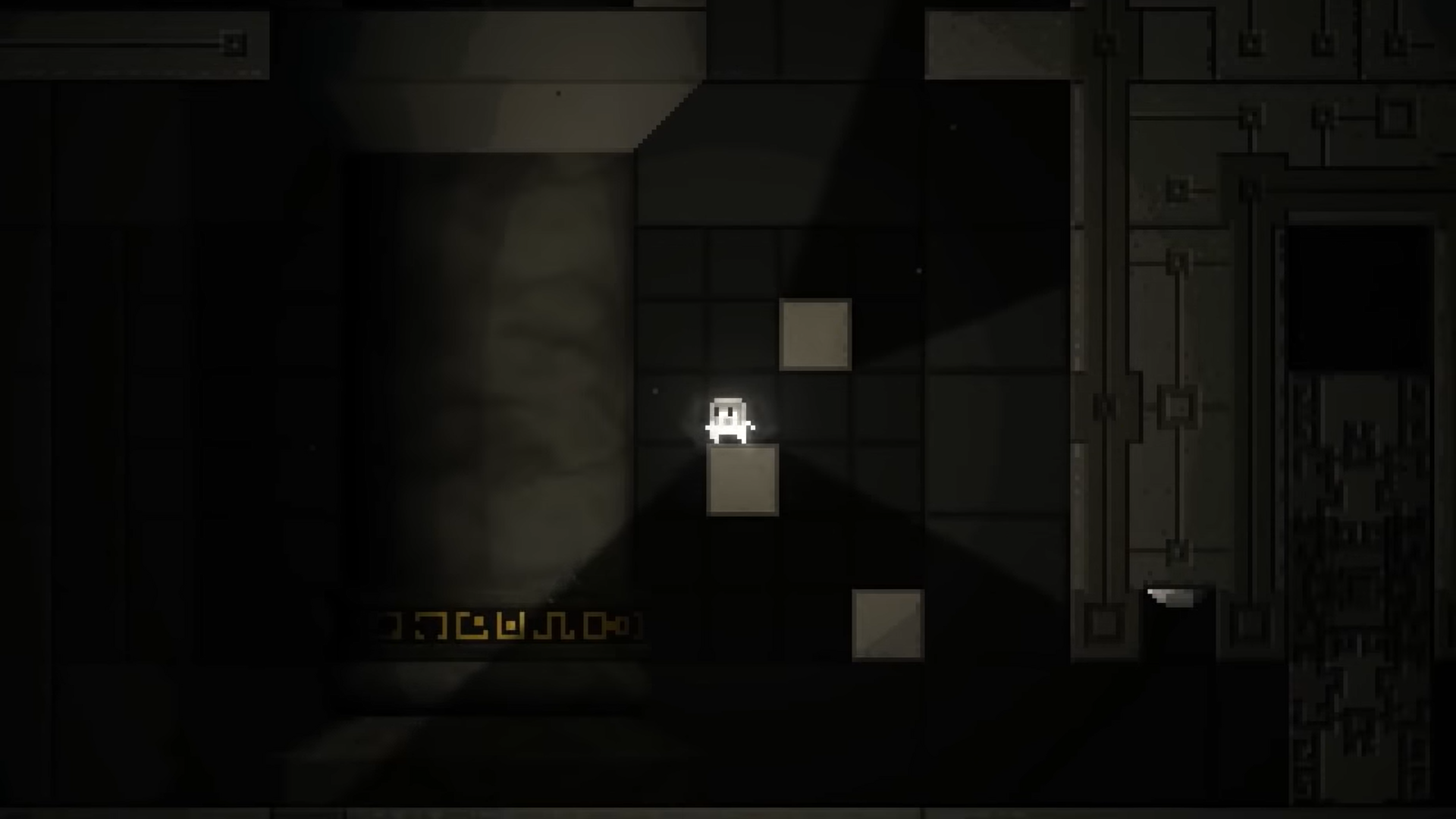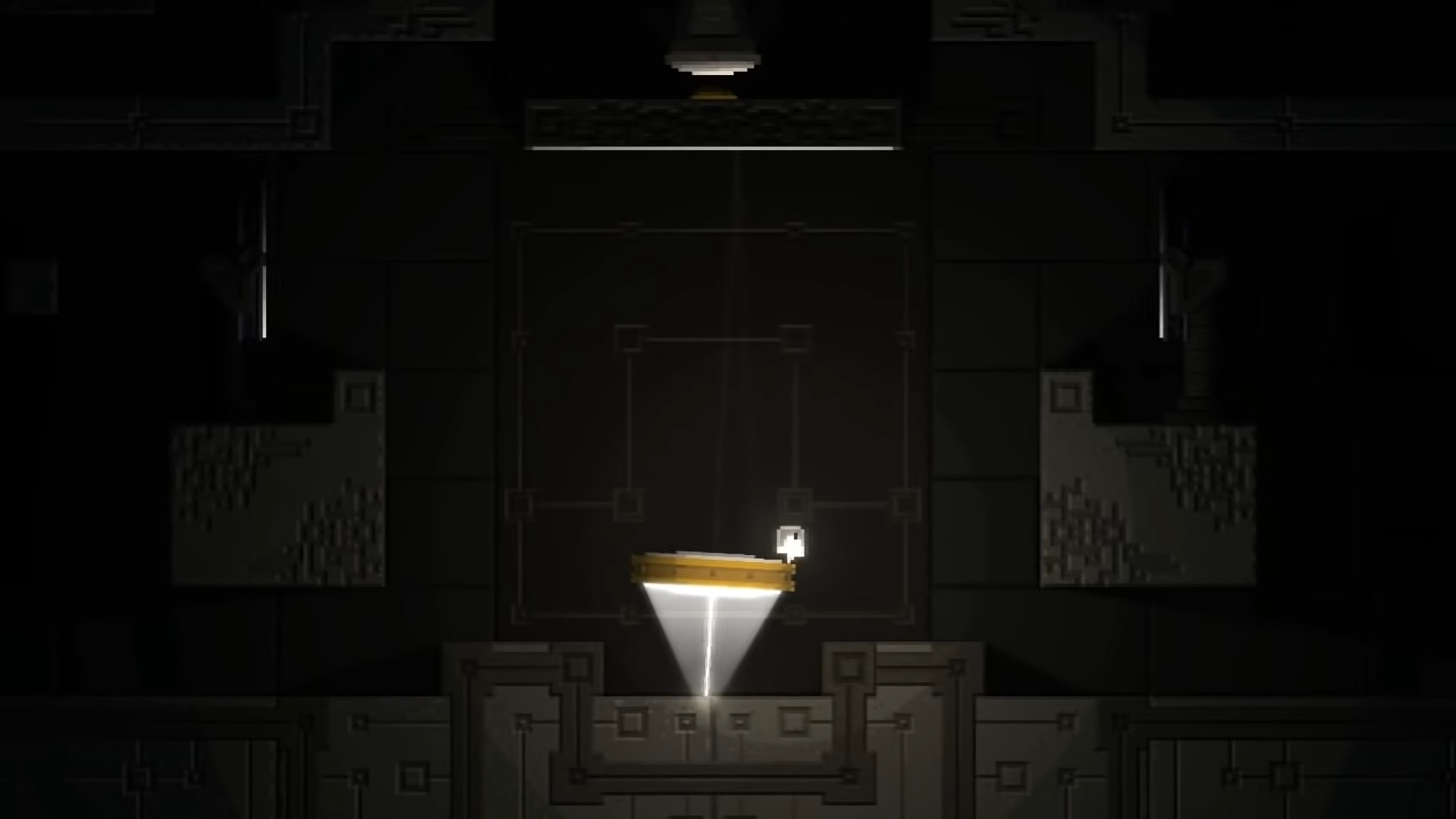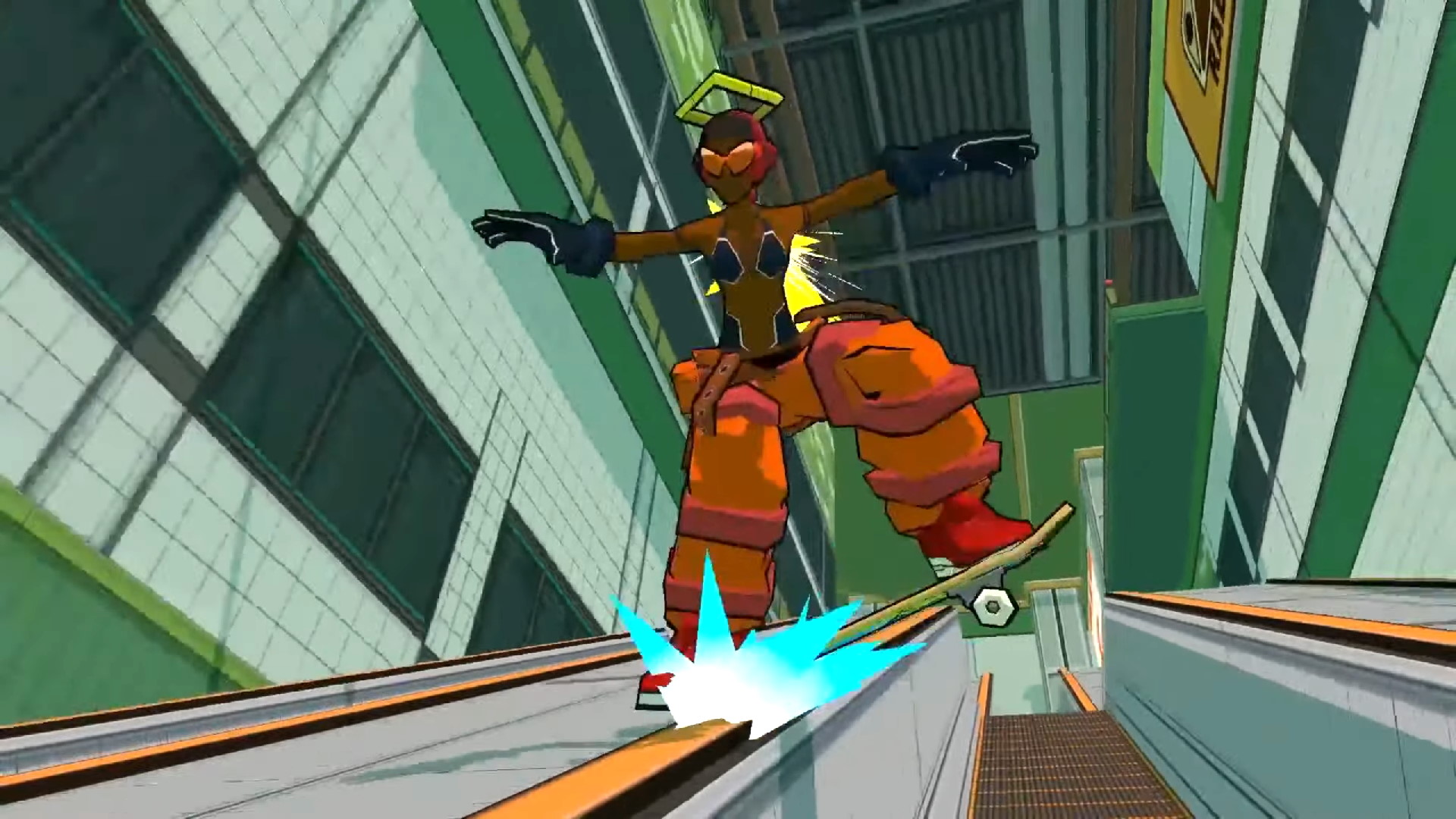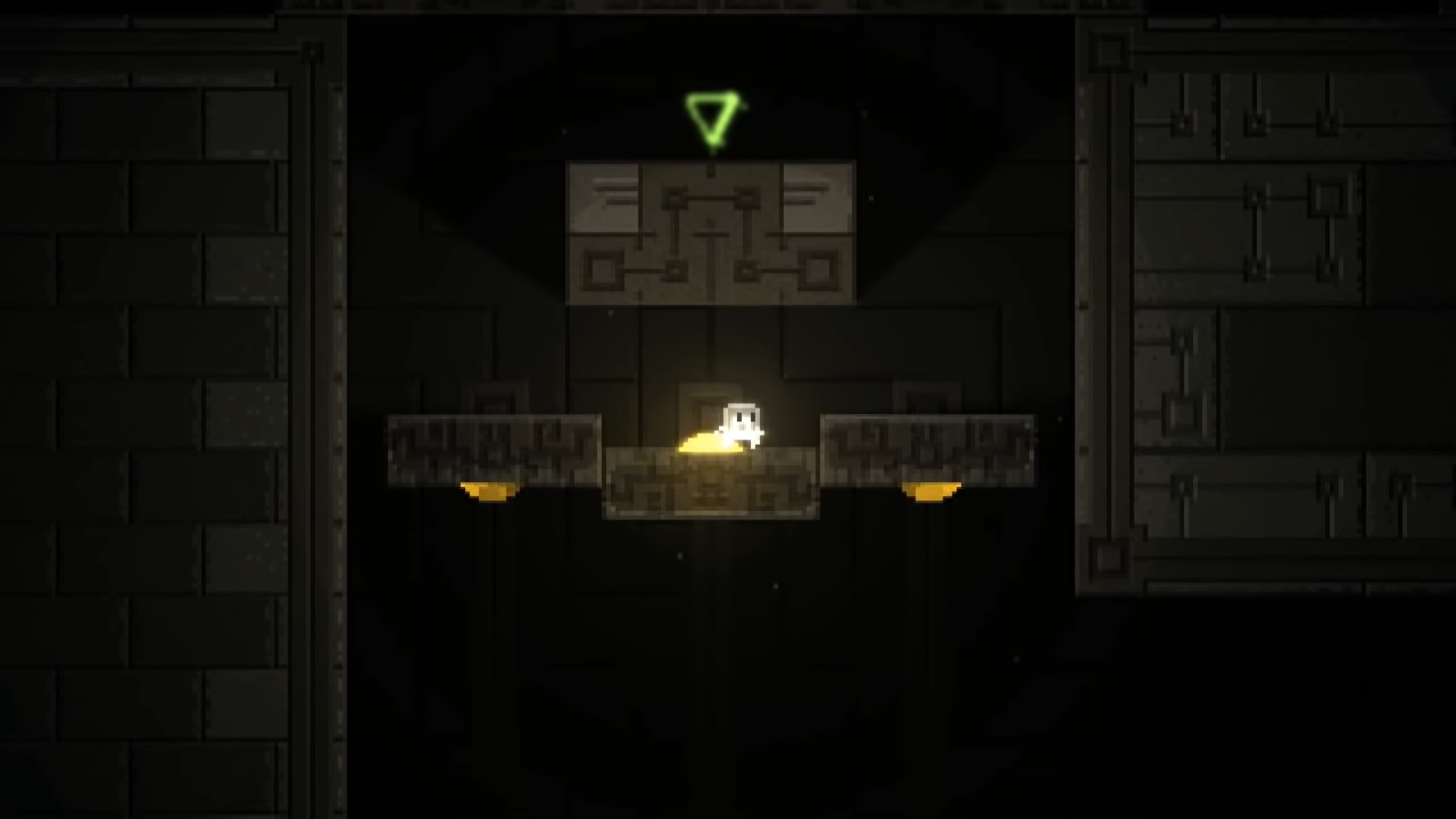This unreleased 10-year-old platformer is the most ingenious game you've never played
The story of Chroma – a wonderful yet ill-fated passion project that was once hotly pursued by Sony

On the show floor of EGX 2013, tucked away in the expo's Indie Arcade, Chroma showed itself to the world with a playable demo for the first time. In visual terms, as a cutesy, pixelated, retro-inspired 2D platformer, the passion project of lone creator Mark Foster was hardly unique against the tide of games driving the indie boom at the time. But its central mechanic was, quite simply, awe-inspiring.
In an act that rivaled Braid's time-remind gimmick and Fez's signature perspective-shifting conceit, Chroma's big sell saw players climbing (and descending) the gradients of shadows. With a primary character who emanated light, a tap of the action button froze an otherwise shifting shadow in place, and allowed a secondary shadowed figure to move along the angles in the dark; reaching otherwise inaccessible areas and cracking puzzles the first character on their lonesome could not. It's hard to explain just how exciting that first use of the mechanic was, and how empowering that pure and mind-blowing eureka moment felt. Shahid Ahmad – then senior business development manager at Sony – took one look at it, and wanted Chroma on PlayStation platforms immediately.
"Yeah, [Shahid] stopped by the booth and said: 'Everyone keeps telling me to play this game'," says Foster, recalling events from EGX 2013 almost a decade on. "So he started playing it. I remember, he was looking at the screen, he did the walk along the shadows thing, and then he paused for a few seconds. He closed his eyes and made this face. He then turned to me straight away and was like: 'What can we do to get this on the platform?' He was into it immediately."
Ludum dare you


Upcoming indie games for 2023 and beyond
Players were into it too. If you spoke to anyone on the EGX show floor at the time, you'd have struggled to find someone who'd played and wasn't heaping praise on Foster and his game, and Chroma latterly featured in just about every indie roundup published on media sites and YouTube in the days after the event. With two years of development time already under his belt, Foster had quit his day job to focus on his debut venture, so the buzz and publicity was more than welcome – especially with a finite supply of resources at his disposal.
A few months later, in January 2014, Foster and his friend David Fenn entered the Ludum Dare 28 game jam with a pixel-style Zelda meets Dark Souls-inspired short named Titan Souls. To the surprise of its creators, esteemed publishing company Devolver Digital reached out shortly afterwards, interested in picking the project up. Suddenly, Foster was faced with a dilemma. He says: "I remember thinking: Should I chase this opportunity; or should I carry on making Chroma? I really wanted to finish making Chroma, I felt like it was going to be good – but at the same time, with Devlover knocking on my door, it was very much a case of: 'I need to see where this goes'. I'm very glad that I did."
Acid Nerve was formed as a two-person team working out of Manchester, England, and development of Titan Souls proper began in earnest. By Foster's own admission, Titan Souls took over everything in he and Fenn's life at that moment, and by the time that game had shipped neither felt like doing much of anything. As you may be aware already, Acid Nerve has since released Telepaint and Death's Door, the latter of which launched across PC, PS5 and PS4, Xbox Series X and Xbox One, and the Nintendo Switch, again under the care of Devolver Digital. Although excited about what the future holds for Acid Nerve, Foster can't go into detail on the specifics. In any event, sadly, it doesn't look like picking up where he left off with Chroma features in either he or Acid Nerve's plans moving forward.
"I actually found the build, weirdly, a week before you emailed me. I didn't have the code for a long while, and I knew it was a hard drive that I'd lost," Foster explains. "I then went back to my parents' house a few weeks ago, and they told me there was a lot of junk that I had to either take with me or look through or throw out. I looked through it and was like: There's the hard drive! After that, I hooked it up and started going through all of my old files. I was playing it for an hour, trying to remember my debug buttons to move around and stuff like that. There's loads of stuff in there, it really was massive, all in one big map. I'd obviously worked on it for a few years, in my spare time when I was still working in my other job, and then on it full-time for a while. I was going through it the other week, and there were a lot more ideas in there than I remembered."
"In that EGX demo, only a little bit of all of that was shown. I think it was really good as a demo game, because that Eureka moment was its strong point. The player would play along and then realize that and be like: 'Oh my God, my mind is blown'. When people get their minds blown, they love that, right? So that moment in the demo made it really compelling. But then if you carry on playing for a few hours or something, there's maybe not all that much to it."
Sign up to the GamesRadar+ Newsletter
Weekly digests, tales from the communities you love, and more
Resigned to the shadows

"The mechanic ideas could be the same, but wherever I'm trying to imagine how it'd work it's just never really panned out or I've simply lost interest in it again."
Foster admits that before misplacing the serendipitous hard drive, he'd already returned to Chroma a few times over the years and arrived at the same conclusion every time. For Foster, Chroma is fun but flawed. It's atmospheric and mysterious, but its puzzles are either too imprecise or their solutions too vague. He's tried to breathe new life into the sidescroller more than once, but has faced the same barriers every time. Over the course of our conversation, I suspect even talking about Chroma in active tense is wishful thinking.
But what does that say about the game itself? I played a short demo of Chroma almost 10 years ago, and yet am still thinking about it today. Shahid Ahmad – who was a driving force behind the indie-focused 'PlayStation loves Devs' initiative, that helped bring everything from Hotline Miami to Octodad and Outlast to PS4 and PS Vita – took one look at it and wanted it on Sony hardware immediately. Personally, I'm pleased for Acid Nerve's success since (I love Titan Souls and Death's Door especially), but I would love to see Chroma brought back from the brink at some point down the line.
Wishful thinking? Maybe. Probably. But you never know. Foster says: "I mean, I'd never said I'd never go back. But, again, I have actually been through it a few times. I remade some of it in Unity, with the basic shadow things and stuff like that. I tried making a new character who was a little candle with a flame on top. I played around with some ideas to see if I could get back into it again, but doing it properly would mean remaking it from scratch because I wouldn't be able to use the same maps. The mechanic ideas could be the same, but wherever I'm trying to imagine how it'd work it's just never really panned out or I've simply lost interest in it again."
So, while not impossible, it seems unlikely we'll ever see Chroma hit the heights it might, or could, or should have. Either way, I'll report back in another 10 years' time, because I'm certain it'll still be on my mind.
Here are some of the best PC games to play right now

Joe Donnelly is a sports editor from Glasgow and former features editor at GamesRadar+. A mental health advocate, Joe has written about video games and mental health for The Guardian, New Statesman, VICE, PC Gamer and many more, and believes the interactive nature of video games makes them uniquely placed to educate and inform. His book Checkpoint considers the complex intersections of video games and mental health, and was shortlisted for Scotland's National Book of the Year for non-fiction in 2021. As familiar with the streets of Los Santos as he is the west of Scotland, Joe can often be found living his best and worst lives in GTA Online and its PC role-playing scene.


